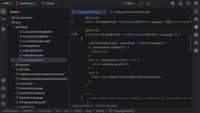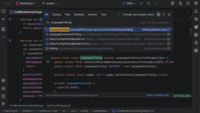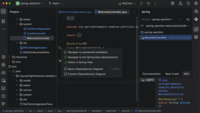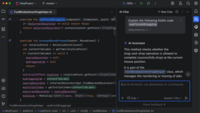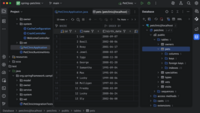IntelliJ IDEA vs. NetBeans
| Product | Rating | Most Used By | Product Summary | Starting Price |
|---|---|---|---|---|
IntelliJ IDEA | N/A | IntelliJ IDEA is an IDE that aims to give Java and Kotlin developers everything they need out of the box, including a smart code editor, built-in developer tools, framework support, database support, web development support, and much more. | $19.90 per month | |
NetBeans | N/A | NetBeans is a free and open source platform and integrated development environment (IDE). | N/A |
| IntelliJ IDEA | NetBeans | |||||||||||||||
|---|---|---|---|---|---|---|---|---|---|---|---|---|---|---|---|---|
| Editions & Modules |
| No answers on this topic | ||||||||||||||
| Offerings |
| |||||||||||||||
| Entry-level Setup Fee | No setup fee | No setup fee | ||||||||||||||
| Additional Details | All Products Pack (For Individual Use) – $299 /1st year, $ 239 /2nd year and $ 179 /3d year onwards All Products Pack (For Organizations) – $979 / year | — | ||||||||||||||
| More Pricing Information | ||||||||||||||||
| IntelliJ IDEA | NetBeans | |
|---|---|---|
| Considered Both Products | IntelliJ IDEA |  NetBeans |
| IntelliJ IDEA | NetBeans | |
|---|---|---|
| Highlights |
| |
| IntelliJ IDEA | NetBeans | |
|---|---|---|
| Small Businesses | PyCharm Score 9.3 out of 10 | PyCharm Score 9.3 out of 10 |
| Medium-sized Companies | PyCharm Score 9.3 out of 10 | PyCharm Score 9.3 out of 10 |
| Enterprises | PyCharm Score 9.3 out of 10 | PyCharm Score 9.3 out of 10 |
| All Alternatives | View all alternatives | View all alternatives |
| IntelliJ IDEA | NetBeans | |
|---|---|---|
| Likelihood to Recommend | 9.7 (58 ratings) | 7.8 (22 ratings) |
| Likelihood to Renew | 5.0 (1 ratings) | - (0 ratings) |
| Usability | 9.2 (8 ratings) | 9.0 (2 ratings) |
| Support Rating | 8.9 (15 ratings) | 8.5 (4 ratings) |
| Implementation Rating | 9.0 (1 ratings) | - (0 ratings) |
| IntelliJ IDEA | NetBeans | |
|---|---|---|
| Likelihood to Recommend | JetBrains
|  Open Source
|
| Pros | JetBrains
|  Open Source
|
| Cons | JetBrains
|  Open Source
|
| Likelihood to Renew | JetBrains
|  Open Source No answers on this topic |
| Usability | JetBrains
|  Open Source
|
| Support Rating | JetBrains
|  Open Source
|
| Implementation Rating | JetBrains
|  Open Source No answers on this topic |
| Alternatives Considered | JetBrains
|  Open Source
|
| Return on Investment | JetBrains
|  Open Source
|
| ScreenShots | IntelliJ IDEA Screenshots |

















